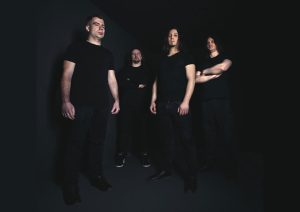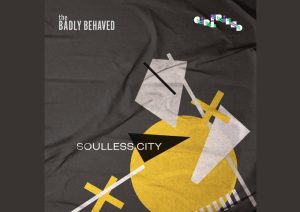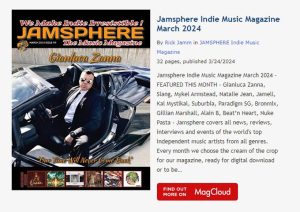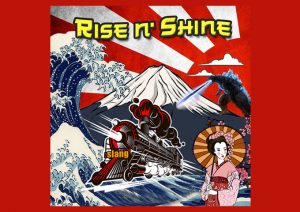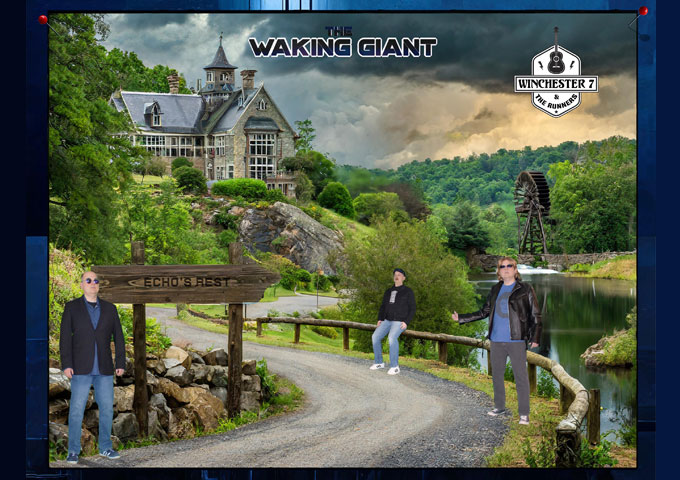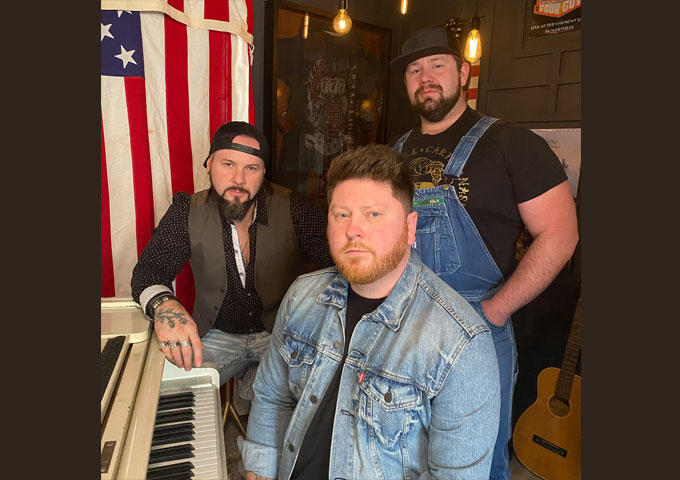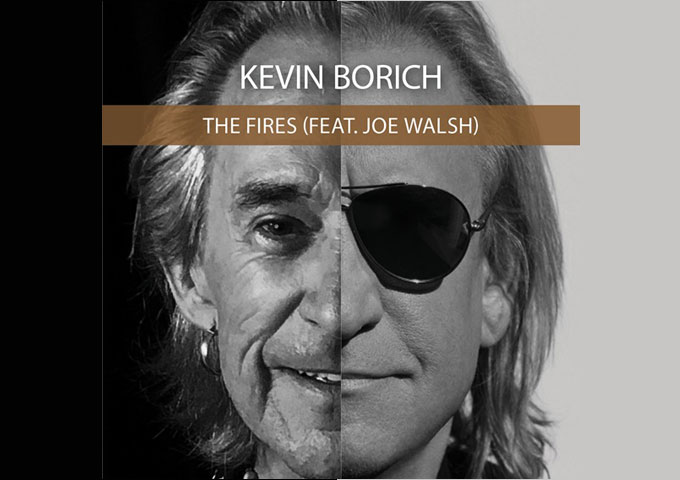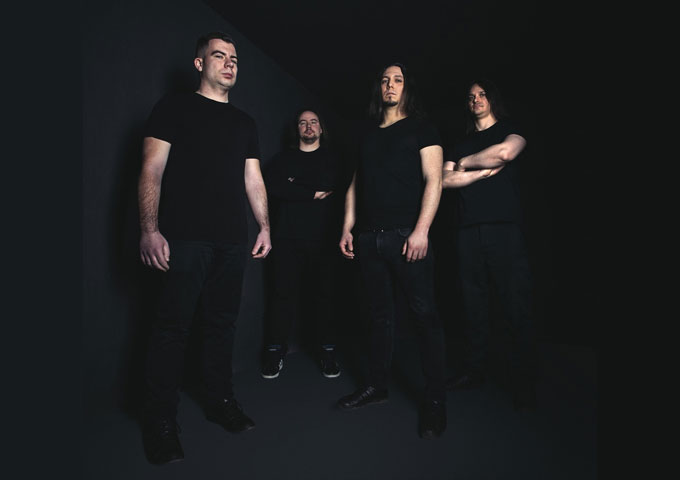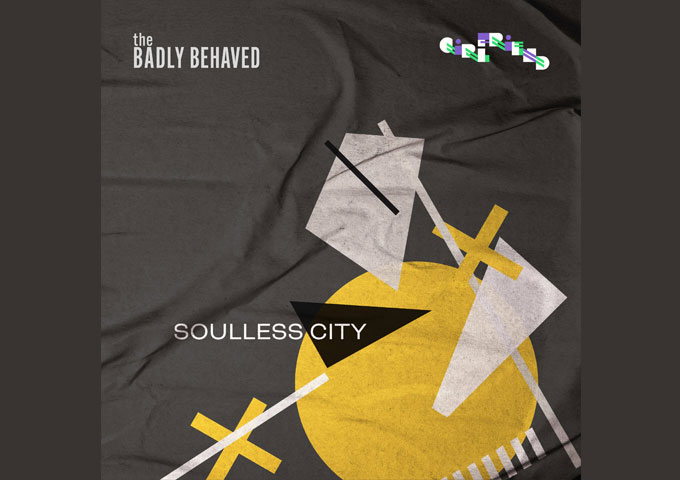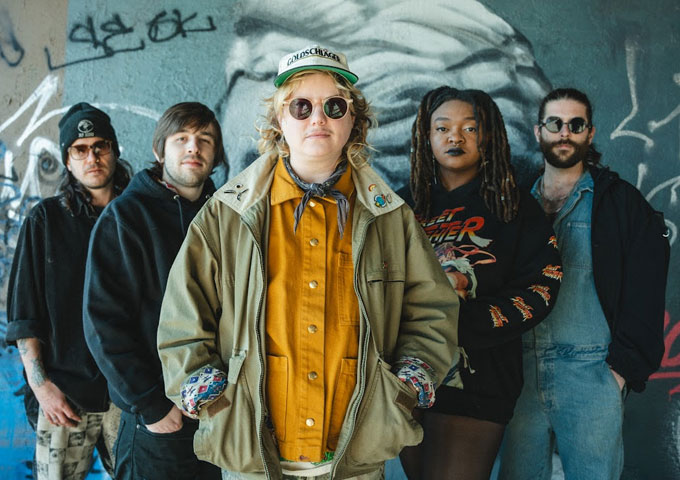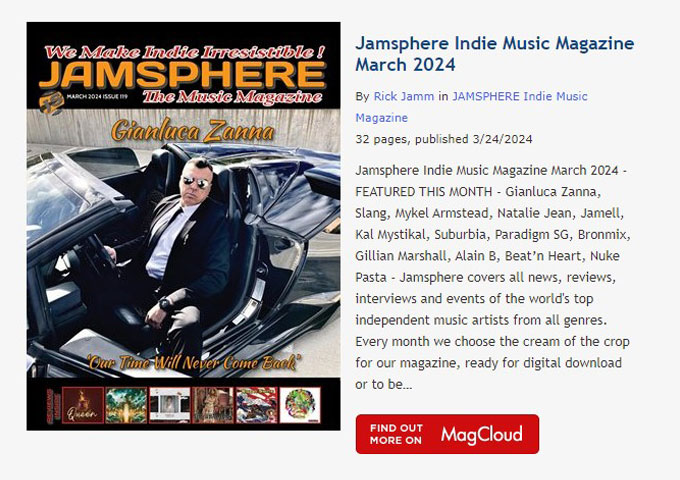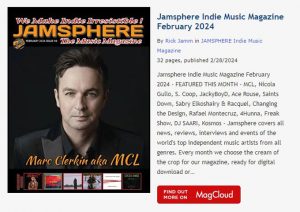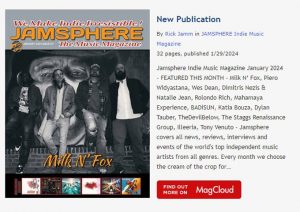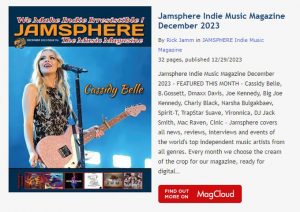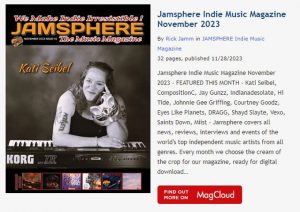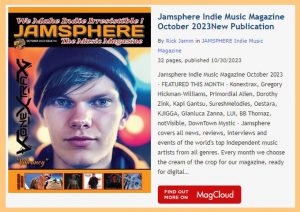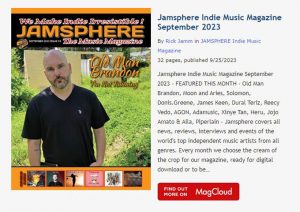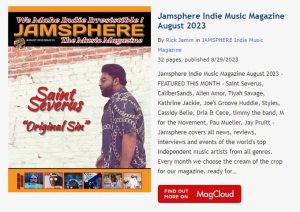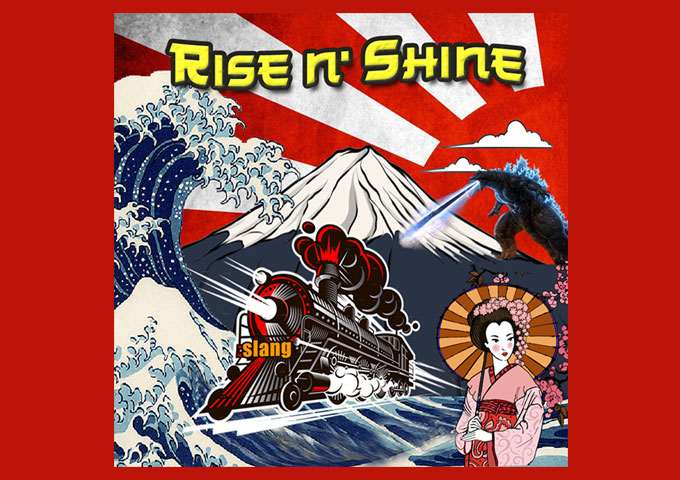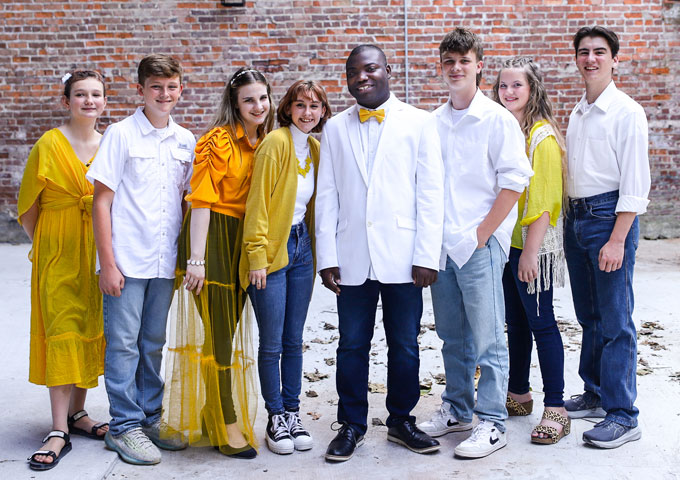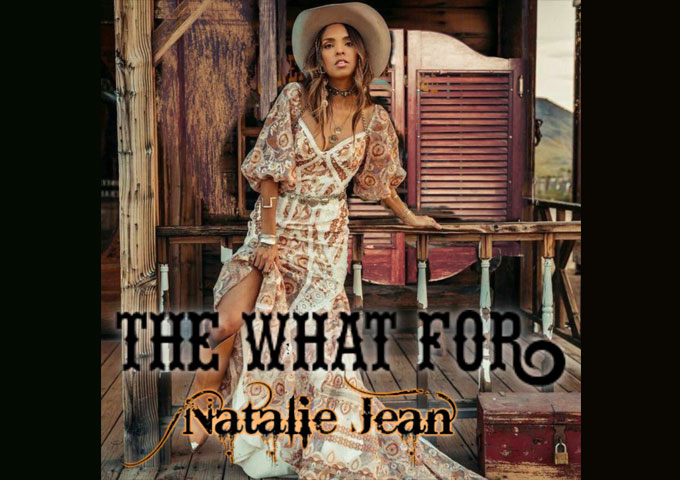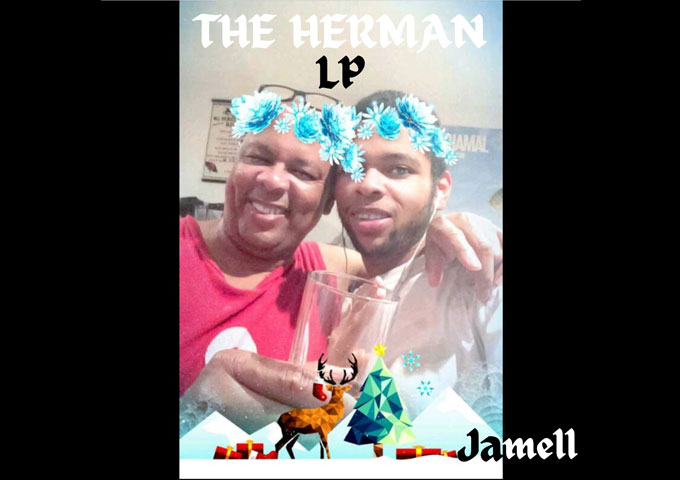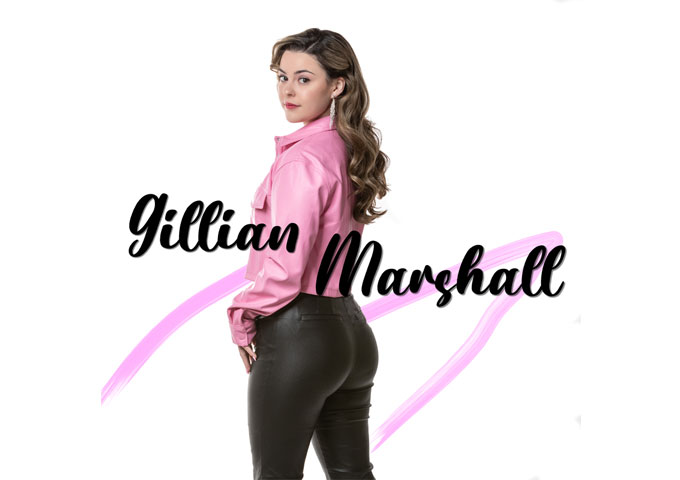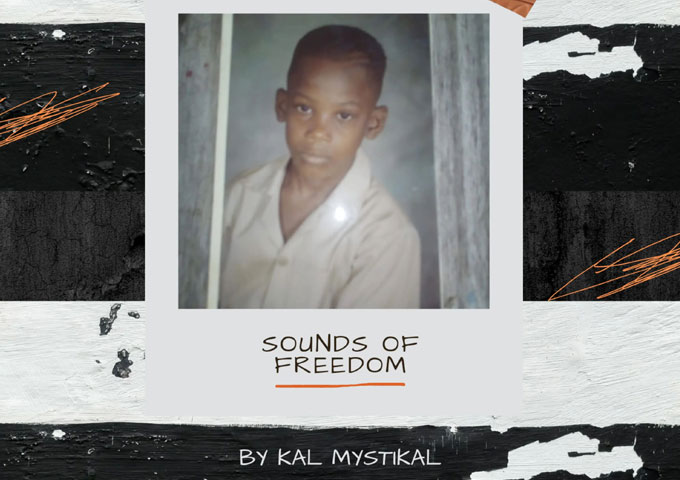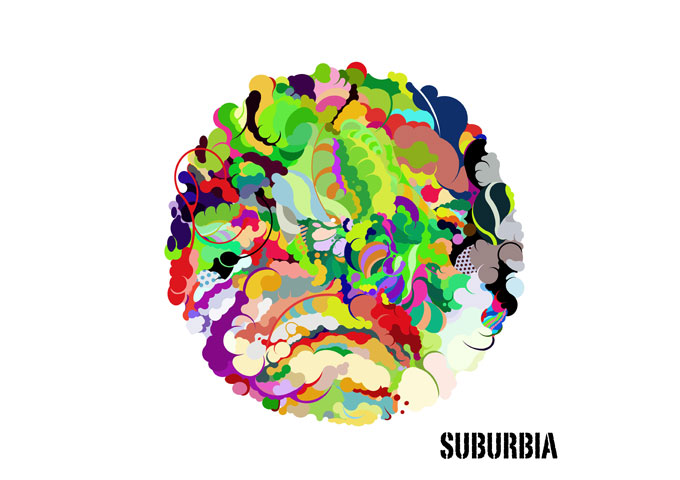Breaking News
Jamsphere Digital & Print Magazines
AI, Ukuleles, and Rocking Landscapes: Inside Winchester 7 & The Runners’ “The Waking Giant”
Prepare yourselves indie-rock aficionados, for a journey into the depths of imagination and musical innovation, as Atlanta’s very own, Winchester 7 & The Runners, are [more…]
Bigg Vinny – ‘BATTLEGROUND’ ft. Jared Blake & Jared Weeks
Middle Tennessee’s own Vencent Hickerson, known affectionately as Bigg Vinny, embodies the essence of Nashville’s rich musical legacy. Raised amidst the melodies and rhythms of [more…]
Epic Collaboration: Kevin Borich and Joe Walsh Drop ‘The Fires’ Single
Amidst the challenges posed by the COVID-19 pandemic, Kevin Borich embarked on a new musical endeavor, crafting his DUETS album project with some of Australia’s [more…]
Black/Death Metal sensation Exodikon plunges headfirst into the abyss with their latest music video, “Untermensch”
Hungarian Black/Death Metal sensation Exodikon plunges headfirst into the abyss with their latest music video, “Untermensch,” extracted from their highly lauded album “Chaosophilia,” now available [more…]
Girlfriend Records announces the release of The Badly Behaved’s latest single, ‘Soulless City’ on April the 22nd
Girlfriend Records is thrilled to announce the release of The Badly Behaved’s latest single, Soulless City. The single is set to be released on April [more…]
Edging Unleashes Raw and Uncompromising New Album: “Concrete Cumming”
Edging, the dynamic punk ensemble known for their unapologetic energy and raw lyricism, is set to release their highly anticipated album, “Concrete Cumming,” on April [more…]
Jamsphere Indie Music Magazine March 2024
Jamsphere Indie Music Magazine March 2024 – FEATURED THIS MONTH – Gianluca Zanna, Slang, Mykel Armstead, Natalie Jean, Jamell, Kal Mystikal, Suburbia, Paradigm SG, Bronmix, [more…]
Journey into Existential Reflection with Narsha Bulgakbaev’s ‘What is the truth?’
In the enigmatic landscape of contemporary global music, where superficiality often reigns supreme, emerges a voice whose artistry transcends mere entertainment – Narsha Bulgakbaev. Born [more…]
Slang’s ‘Rise n’ Shine’ : A Tribute to the Spirit of Japan
In the competitive arena of instrumental rock, where the language of emotion is spoken through strings and frets, few independent music names command as much [more…]
P-Math: Unveiling New Waves of Emotion with Upcoming EP Showcase
Prepare to be immersed in a tidal wave of emotion as up-and-coming artist P-Math unveils his latest single and EP showcase. Fresh off the heels [more…]
Soul-Stirring Reverence: Mykel Armstead and the New Life Student Worship Team’s ‘Jesus’ EP Redefines Praise
In the bustling landscape of contemporary Christian music, few voices rise above the fray to truly captivate both the ears and the souls of listeners. [more…]
Infectious Energy Meets Unparalleled Talent: Natalie Jean’s ‘The What For’
In the pulsating landscape of independent music, where every beat tells a story and every chord ignites a spark, there exists a realm where passion [more…]
Gianluca Zanna Unveils Emotional Masterpiece: ‘Our Time Will Never Come Back’
In the ever-evolving landscape of electronic music, where innovation intertwines with emotion, one artist stands out amidst the cacophony of beats and melodies. Gianluca Zanna, [more…]
Experience Sonic Enlightenment: Paradigm SG’s ‘Affirmations – Mindful 808s’
In the vast expanse of musical expression, where notes dance and melodies entwine, there exists a realm where the harmonies of the universe converge with [more…]
Sonic Symphonies: Bronmix’s “Gilded Age II: Lemuria” Resonates
In the realm of electronic music, where innovation is the currency and creativity the crown jewel, emerges a luminary whose sonic tapestries transcend time and [more…]
From Pain to Power: Jamell’s Musical Revelation in “The Herman LP”
In the labyrinth of urban music, where authenticity is often overshadowed by bravado, emerges an artist whose melodies resonate with the echoes of a troubled [more…]
Gillian Marshall’s Self-titled EP Sets Hearts Aflutter
In the boundless universe of music, every once in a while, an artist emerges who not only captivates us with their talent but also enchants [more…]
Discover the Sonic Tapestry of Kal Mystikal’s ‘Sounds of Freedom’
In the dynamic realm where musical prowess meets cultural fusion, there emerges an artist whose melodies transcend borders, Kal Mystikal. Formerly known as Speng Eyeziz, [more…]
Suburbia’s ‘La Tormenta’: A Symphonic Exploration of Indie Brilliance
In the bustling landscape of indie-pop and rock, emerging from the depths of Spain comes Suburbia, a musical project helmed by the talented Jorge Martín. [more…]



